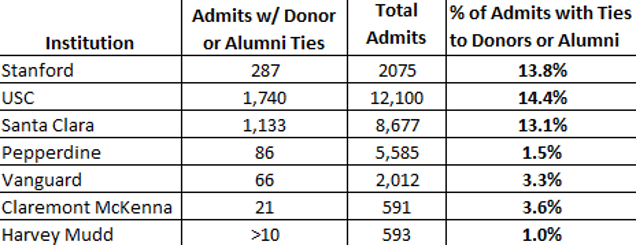
California is another step closer to ending preferential treatment in the college application process, after the state Assembly today approved AB 1780 by Assemblymember Phil Ting (D-San Francisco). The proposal prioritizes equal opportunity by banning “legacy admissions,” which heavily tips the scales in favor of accepting someone related to a donor or alumni of the university or college. It often results in a wealthier, less racially diverse student body. Continuing this practice could result in financial consequences for the school.
“Everyone should be considered fairly. If you work hard, get good grades and have a well-rounded background, your spot should not be taken by someone else just because their family can write a big check or is a graduate of that school,” said Ting. “If we value diversity in higher education, we must level the playing field. That means making the college application process more fair and equitable.”
As the Assembly Higher Education Committee considered AB 1780 last month, the bill went through some amendments. It now financially penalizes a school for practicing legacy admissions with a civil fine equal to the amount of CalGrants it received in the prior year. The legislation originally prevented students from using their CalGrants at campuses that prioritized applicants with donor or alumni ties.
"Calling nepotism 'legacy' doesn't make it okay. California colleges should be engines of economic mobility, not family heirlooms passed down from parent to child. That's why Class Action's student organizers are fighting to get AB 1780 onto Governor Newsom's desk. This bill is on the side of students, and we encourage the California Senate to be as well,” said Ryan Cieslikowski, Lead Organizer at Class Action.
AB 1780 is in response to last summer’s U.S. Supreme Court ruling that bans race considerations in the college admissions process. If race can’t be a factor, Ting and other supporters believe wealth or relationships shouldn’t be considered either. A recent study by Opportunities Insights, a group of economists based at Harvard University focusing their research on inequality, found children of the one-percent – defined as parents earning more than $611,000 a year – are more than twice as likely to admit a student from a high-income family when compared to low- or middle-income families with comparable SAT/ ACT scores.
How prevalent are legacy admissions? A 2019 bill by Ting, AB 697, requires private universities and schools to annually report their preferential treatment numbers to the state, if they have any, by June 30th. While we wait for Fall 2023 numbers to be submitted this summer, Fall 2022 enrollment data show:

Colorado and Virginia have instituted bans on legacy admissions at both public universities and colleges. Only Maryland prohibits the practice at both private and public institutions. California would join Maryland, if AB 1780 and its application to private schools were enacted. California’s UCs, CSUs and community colleges already don’t consider donor and alumni ties. The state of New York has also proposed a similar end to legacy admissions at both public and private institutions. Ting’s legislation now heads to the Senate. All bills must get to the Governor’s desk by the August 31st deadline.